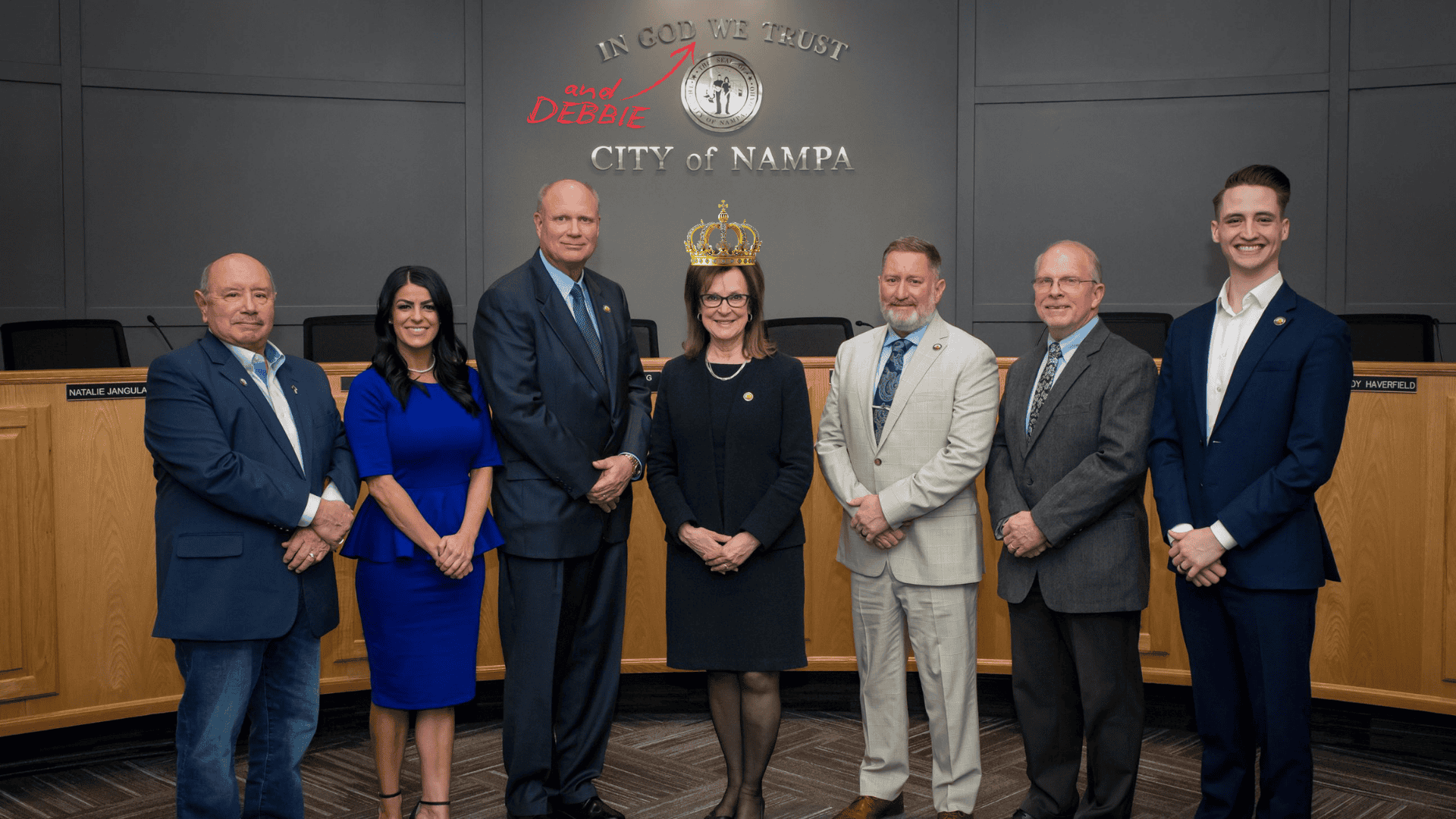



Since our last article, criticism of the proposed transfer of the Ford Idaho Center (FIC) to the College of Western Idaho (CWI) has escalated monumentally. Nampans are speaking out to express their disapproval — and they are not being quiet about it.
At the August 11, 2025, “listening” town hall, the Mayor and members of the Nampa City Council offered a stunning display of unprofessionalism, condescension, and defensiveness. What was perhaps intended to be an attempt at transparency turned into a case study in poor public engagement.
The people’s displeasure with the potential conveyance was on full display as Nampan after Nampan rose to testify against the conveyance, with few speaking in support. One resident compared the experience to “coming before the Queen and her court,” echoing the widespread sentiment that taxpayers — who have funded and maintained the FIC — were shut out of the conversation from the start. Residents argued they should have been “brought in at the concept level,” not informed after major decisions were seemingly already made.
The Mayor’s response to concerns of the lack of transparency was, “What are we doing here?” — a tone-deaf moment underscoring Nampa residents’ frustration at being offered little more than a perfunctory invitation to speak on the situation as a whole.
Rather than encouraging dialogue, most Nampa officials appeared defensive and unprepared to engage meaningfully with the residents they serve. What should have been a collaborative session instead resembled a carefully staged public relations effort.
Despite numerous thoughtful solutions raised by residents at the meeting and on social media platforms — including viable alternatives to outright conveyance — none appear to be satisfactory for city leaders. Councilwoman Jangula stated on social media the City leadership is still open to “real solutions that will pencil out.” But if the community’s ideas are continuously brushed aside, one has to ask: are they even being considered?
To date, no independent appraisal of the FIC appears to have been conducted, and the figures cited by city leaders seem inconsistent. Councilman Randy Haverfield wisely shared during the August 11 meeting that he lacked enough information to assess whether the Center is underutilized — the very argument driving this proposed transfer.
The Ford Idaho Center was community-built — constructed through generous donations, the use of public funds, and even private contributions. It was intended to preserve Nampa’s western heritage, bolster the economy, and serve as a gathering place for the community. So why is the community just now being asked to weigh in?
This whole process reeks of mismanagement and secrecy. Handing the FIC over to CWI in this way strips Nampans of their voice and removes accountability. Should the FIC be conveyed, control is handed to a board composed of Canyon and Ada counties. How is this a fair solution for Nampans who have been cutting the check for this building for several decades?
Finally, the FIC isn’t going to disappear any time soon. It is a fixture, a large, obvious fixture. Do Nampa city officials really want the majority of the community to be reminded of the bitterness of their Council’s polluted process and bullying behavior every time they drive down Garrity (Idaho Center) Boulevard or see it from I-84? Is that the legacy they desire?
It’s not too late, the city has time to recalculate their route, make a U-turn, and get back on course to respecting their taxpayers and loyal citizens. Show some humility, apologize for their arrogance, and admit their mistake. It’s the least they could do after seeing Nampa families’ understandable outrage at losing the hundreds of millions paid over the years, being shut out of the process, and being talked down to, all in just these last few weeks.
As city leaders scramble to salvage support, residents are becoming more organized, more vocal, and more unwilling to accept vague assurances in place of real answers. Unless the City of Nampa hits the pause button, conducts a proper public process, and restores basic trust, this potential deal will go down not as bold governance, but as a multi-million-dollar blunder carried out in the face of overwhelming public opposition.


